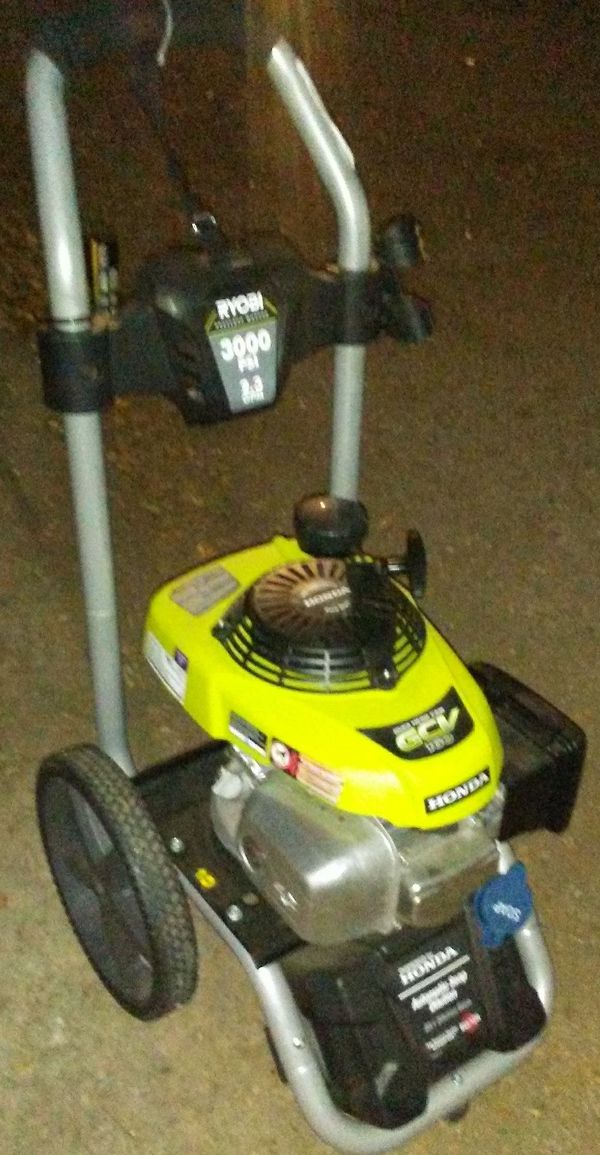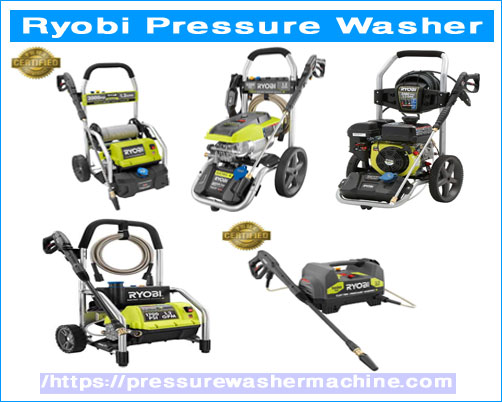
Again, this 49-pounder isn't the pressure washer you'll want for heavy-duty jobs, and some reviewers have complained about cheap plastic parts, but for most of us, this'll get the job done. This washer also features tons of extra touches that make it convenient for home use, like a 25-foot non-marring hose, an onboard soap tank and a "Turbo" Pressure nozzle that boosts your pressure up to 50%. It's powered by a 13-amp brushless motor that's paired with an axial cam pump as you'd normally see on a gas-powered pressure washer, insuring that you're squeezing as much power as possible out of the electric motor.

You're not going to use it for stripping paint off your deck or anything too extreme, but for the bulk of chores for which most people would want to use a pressure washer - washing your windows, cleaning your fence, rinsing off your patio furniture - this pressure washer is a dream. With a medium-duty PSI of 2,300 and 1.2 GPM, this electric power washer sits right at the center of most people's needs. Ryobi is the pressure washer industry's top brand, and this is arguably its signature model.

#Ryobi 3000 psi pressure washer problems plus
On the plus side, because you don't need to plug them in, you do get more freedom of movement with a gas pressure washer, and the high end of their PSI and GPM are going to be greater than those of the most powerful electric pressure washers. They're also louder and smellier because of the gas and combustion. Gas-powered power washers are a good deal heavier and more of a hassle to deal with since you need to buy gasoline and fill them with it in order for them to run. The drawbacks are that they're often weaker than their gas-powered counterparts, and because they need to be plugged in (cordless versions do exist, but are even weaker), you have less freedom of movement. Electric power washers are lighter, quieter and easier to use - you just plug them in and go. Like most lawn and garden equipment, pressure washers are available in both gas- and electric-powered versions, with each offering its own pros and cons. So, for example, if a pressure washer has a PSI of 2,000 and a GPM of 1.5, then it has 3,000 cleaning units. Even if the pressure washer you're looking at doesn't give a CU rating, the measurement is simple to calculate. CUĬU stands for "cleaning units," and it's the best overall measurement to take into consideration when you're trying to figure out the efficiency of a power washer. Like with PSI, GPMs typically correspond with a pressure washer's use case, with low GPMs of 0.5-2 being seen on light-duty power washers, 1-3 GPM on medium-duty and 2-4 GPM ratings on heavy-duty pressure washers. So, a higher GPM translates to a better-performing pressure washer. If it's pumping out more water, then you'll be able to cover a larger area more quickly. GPMĪfter PSI, the other big measurement to look out for when shopping for pressure washers is GPM or "gallons per minute." This is a calculation of how much water your pressure washer is using, rather than how strong your stream is. These will have PSIs of 2,800 or more (typically at least 3,000 PSI) and should only be used on surfaces that won't be damaged by such high pressure. Stripping paint, blasting oil spots off of your driveway - that sort of thing. Heavy Duty: These are your big boys, reserved for the toughest and dirtiest jobs. Medium Duty: Ranking between 1,900 and 2,788 PSI, these mid-range pressure washers are better suited to your bigger jobs around the house, like cleaning off your deck or siding. Light Duty: These washers max out below 1,900 PSI and are used in situations where too much pressure could cause damage, such as delicate areas of your home like gutters. Generally speaking, pressure washers are categorized into three groups based on their PSIs: Basically, this tells you how powerful the stream is, and it will determine what kinds of jobs you'll be able to use your power washer for.

PSI stands for "pounds per square inch" and it's the pressure rating for your pressure washer. What to Look for in a Pressure Washer PSI


 0 kommentar(er)
0 kommentar(er)
